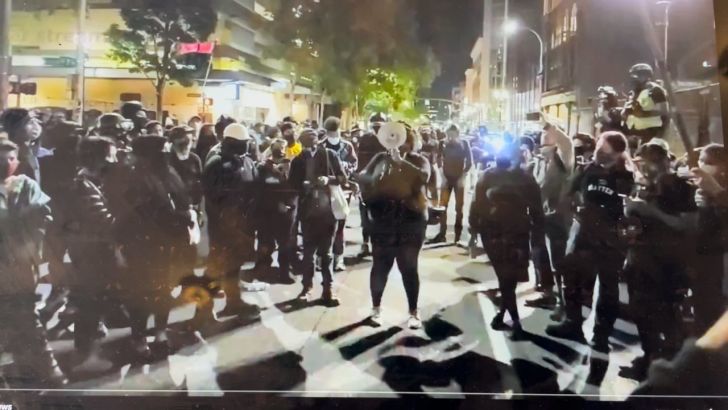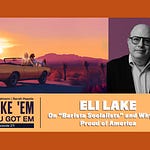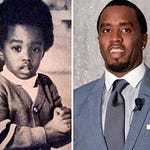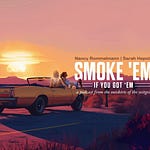Back next week with another recipe. Until then, please join me over at Make More Pie for extensive coverage of Portland and the occasional Paloma party pic…
Dispatch from Portland 2023: The Death Eaters
A day after 9/11, a thought came to me: Now we need the poets. There were enough and forever would be the pundits, the partisans, the do-gooders and the cranks telling us what to think and what to feel. None could be counted on to handle what happened with the care required to get us to the other side. Which is maybe why I had the image of the poets emerging from their underground offices, blinking into the light. They would take possession of our anguish and transform it into a set of celestial crutches. They would not ask for recognition and we would not give it; we would use the supports until they mended our bones and became our bones. This, I thought, was rebirth. This was grace.
I recalled this image several times as I reported on events in Portland in 2020, as I watched the fires and destruction during what I've come to think of as the summer of rage, though it lasted more than a summer and its downstream effects do damage still, up to and including murder. I thought, as residents tore down their own city, how we were seeing nihilism in action, the opposite of grace.
I don’t think this was the intent. In May 2020, Portland’s young (and some not so young) were ready for a cause and for release. They’d been marching against Trump since before he was the 2016 nominee, and cooped up in the house since March. The killing of George Floyd by Minneapolis police proved a catalyst; people would show they were decent and brave and, by their ardency, maybe transcend Portland’s reputation as the whitest major city in America.
“Thou dost protest too loudly,” my dad would tell me when I was a kid and trying to talk my way out of something. If night after night Portlanders shouted about how tolerant they were, their actions spoke of carelessness. They ransacked black businesses; the Thai restaurant near the federal courthouse had its window broken dozens of times. Those who complained about the continuing violence were shouted down, followed home, made confused. I will not forget the father holding his toddler under the porch light and applauding as hundreds of black-helmeted, stomp-booted young people marched past his house.
“BLACK PEOPLE USED TO LIVE HERE!” a young woman shouted at him through her megaphone, and the father, he didn’t know what to do: keep applauding?
I moved to Portland in 2004 thinking it was a live-and-let-live kind of place. I was disabused of this by my mother-in-law, who my first week there cautioned that, in Portland, if you did not have something nice to say, better to not say anything at all.
My second clue that Portland was not the laid-back city of lore came a month later, when I was registering my daughter in a local public school and accidentally parked in someone's driveway. I returned to find a note on my windshield telling me I was an entitled moron, and why didn't I turn my car around and head back to California? The anger was so fresh, and was still fresh in 2011, when the culture editor of the city's alt-weekly wrote, "One thing I do like is the idea that Portlanders are furiously angry underneath their calm demeanors."
She was writing in response to local fury at the TV series Portlandia, whose catchphrase was, "Portland is the city where young people go to retire." The country was getting a kick out of the show. Portlanders? Not so much.
"Fuck you, Portlandia!" read an anonymous letter printed in the alt-weekly. "I've been here for 20 years. I have watched it change. Portland is now a soulless amusement park for the entitled and wealthy. I hate what this city is becoming, and I blame YOU!"
This was around the time an editor of another paper told me he feared for the young people of Portland, the ones who'd believed the city uniquely fertile, a place to make a life doing only what you loved.
"They pour all their energy into drawing comics or the local bike scene instead of doing something constructive with it, something that might be relevant on a national or international scale. Then they lose confidence,” he said. “The waste of potential is tragic. I hate to think of ten years from now, all those twenty-somethings depressed because their lives are stuck."
Ten years on and the weather systems that were Donald Trump, COVID, and the killing of George Floyd collided. Here was the opportunity to relieve some pressure; to aim one's frustration and see it land. There was more than one way to plant a seed. Bonus points if it bequeathed identity and felt like industry.
Cue the burning buildings, the metric tons of broken glass, the people hounded from their homes, the mayor hounded from his condo, a celebration of destruction that resulted in at least one murder, a murder celebrated by people in the street. As I said, a death-cult.
Listen to this episode with a 7-day free trial
Subscribe to Smoke 'Em If You Got 'Em Podcast to listen to this post and get 7 days of free access to the full post archives.












